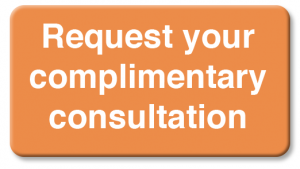Learn how offering relocation benefits can help hire top talent
It’s no secret that your company must set itself apart from the competition if you want top talent for job openings. What factors can put your company above the rest when hiring for vacant positions?
Offering relocation benefits to those who have to move for the job could be a great way to lure top talent. But just how much does the offering of global relocation packages help persuade candidates to your side?
Korn Ferry’s study “Global Talent Crunch” highlights the skilled talent shortage impacting countries and specific industries worldwide. Many countries are already facing a skilled talent shortage across several industries. The study examines the talent shortage issue across twenty major developed and developing countries, including:
- Americas: Brazil, Mexico, United States
- EMEA: France, Germany, Netherlands, Russia, Saudi Arabia, South Africa, United Arab Emirates, United Kingdom
- Asia Pacific: Australia, China, India, Indonesia, Japan, Malaysia, Singapore, Thailand
Which industries are most at risk due to talent shortage?
The financial and business services industries are the most at risk due to talent shortage. According to the study, these industries could be facing a shortage of nearly 11 million workers by 2030, with about $1.3 trillion negative impact. Across the globe, technological advancement is at risk due to a skilled talent shortage of over 4 million Technology, Media, and Telecommunications (TMT) workers by 2030. Additionally, manufacturing will have a surplus of workers through 2023, quickly becoming a skilled talent shortage of nearly 8 million workers by 2030.
Which countries are most at risk due to talent shortage?
The greatest vulnerability to talent scarcity lies in advanced nations. France and Germany in Europe and Japan in Asia encounter the highest levels of risk. The United States and Australia also confront a significant deficit in skilled personnel, with the US anticipating a staggering loss of approximately $1.8 trillion in yearly earnings by 2030. Conversely, India stands alone among the countries examined, as it remains in possession of an excess of skilled talent until 2030.
What should employers expect?
Employers should expect to find it increasingly difficult to recruit and hire in several countries and industries. Those with plans to expand into new markets should consider this as they develop their hiring plans and corporate objectives.
Employers finding difficulties hiring and recruiting for positions in specific countries and industries should consider highlighting their relocation program’s benefits in their recruiting materials. The healthcare industry has been facing a critical talent shortage for several years. Healthcare employers have responded in several ways, including:
- Providing Exceptional Candidate Experiences
- Using Data to Enhance Recruiting
- Recruiting for Cultural Fit
- Creating a Superior Employer Brand
- Speeding the Process to Keep Candidates Engaged
Relocation Management Companies (RMCs) are ideal sources for information on global candidate recruitment and relocation. Pre-Decision Services are critical for employers as they provide valuable information about a candidate’s ability to accept a position and be successful. Assessment data can be paired with structured interview questions to understand better the candidate’s interests, goals, and motivations.
Contact GMS for More Resources
The team of professionals at Global Mobility Solutions (GMS) specializes in assisting companies with corporate relocation, creating effective relocation programs that can successfully appeal to and maintain skilled employees. By implementing industry-leading strategies, our team can help your company design a relocation program that enhances your ability to attract and retain new employees and alleviate the challenges of a talent shortage.
GMS became the inaugural relocation firm to become a registered .com. Additionally, they developed the initial digital tools and calculators, which significantly changed the relocation sector. GMS persists in leading the industry by introducing pioneering innovations and technological solutions through their exclusive MyRelocation™ technology platform.
Contact our experts online to discuss your company’s relocation program needs.
We're Here to Help! Request a Courtesy Consultation
Are you ready to talk to a Mobility Pro? Learn how GMS can optimize your mobility program, enhance your policies to meet today’s unique challenges, receive an in-depth industry benchmark, or simply ask us a question. Your Mobility Pro will be in touch within 1 business day for a no-pressure, courtesy consultation.













